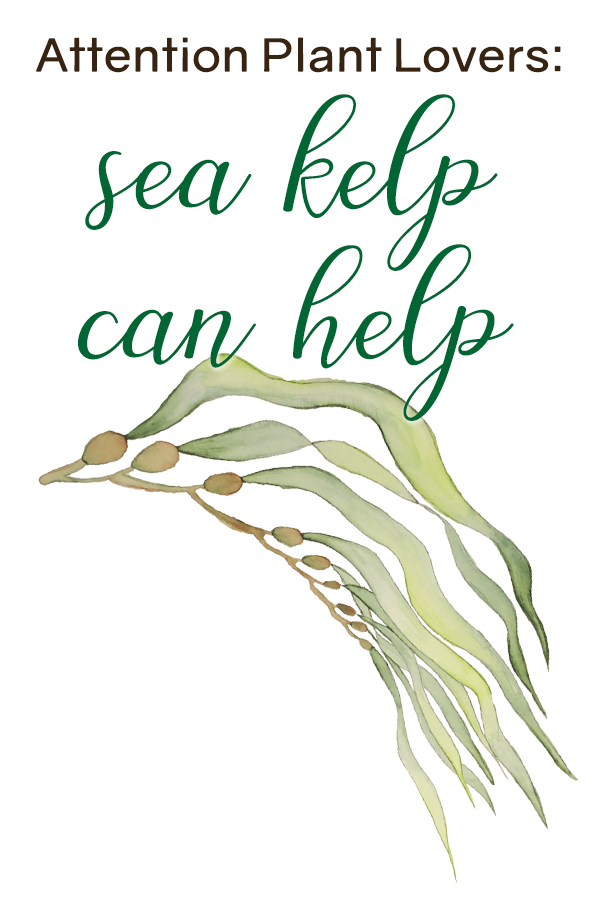Attention Plant Lovers: Sea Kelp Can Help
Attention Plant Lovers:
Sea Kelp Can Help
Of all the plant growth stimulants, sea kelp tends to be the underdog. And yet, it has the broadest and most balanced range of nutrients. To further understand why you should consider using sea kelp when gardening, here are some of its benefits.
1. Improves Fruit Quality
Sea kelp improves fruit quality due to the large quantity of potassium it possesses. Better fruits also result from cytokinins, growth hormones that promote cell division and the development of chloroplasts.* Sea Kelp is especially helpful to citrus plants, as it provides the nitrogen they need, but cannot get a sufficient amount of due to constant erosion.* The use of sea kelp not only leads to greater overall fruit production but also reduces the risk of fruits softening or rotting.
2. Strengthens Root Systems
Sea kelp extracts stimulate the formation of root hairs and strengthen root systems thanks to auxins. By encouraging larger root masses, sea kelp helps to increase the uptake of water and various nutrients.* Does this sound familiar? Pellet 3-IA contains IBA, another auxin that boosts root mass. More nutrients help break seed dormancy and leads to greater stem elongation and flower development. A stronger root system also means that sea kelp can reduce transplant shock.*
3. Boosts Crop Yields
For crops to grow successfully, they first and foremost need good soil. Sea kelp is a very effective soil conditioner and improves fertility through humus formation and aeration.* It conditions in a natural way by stimulating microorganisms and bacteria in the soil as well as increasing moisture retention. As a result, sea kelp helps to increase crop yield and quality by creating healthy soil.*
4. Increased Resistance
Sea kelp contains vitamins and minerals that build plants’ resistance to pests, disease, frost and drought. By increasing plant immunity and strengthening cell walls, sea kelp helps plants withstand different environmental conditions and external stressors, thus increasing the rate of survival.*
5. Organic and Sustainable
One of the biggest advantages of using sea kelp is that it’s organic. Sea kelp is all-natural, non-toxic, and poses no environmental known hazards. Due to its sustainable nature, sea kelp is also easy to obtain and use without depleting the main source. Oftentimes, sea kelp can be applied as a liquid fertilizer at the base of plants, added to a drip irrigation system, or used in a diluted form as a foliar spray (the most effective method of application).*
Due to many of the above factors and wanting to bring the best product to our customers, we have recently decided to add sea kelp to Pellet 3-IA. The addition of sea kelp will strengthen our product to encourage even more impressive plant growth!
